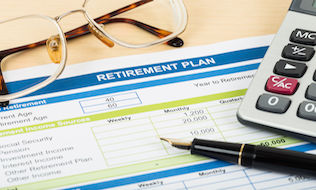

Nearly two-thirds (61 per cent) of older workers in the United States said they’ve experienced age discrimination in the workplace, according to a survey by the American Association of Retired Persons.
The survey, which polled 3,900 Americans who are aged 45 or older, also found 91 per cent of respondents reported age discrimination is very or somewhat common. It starts when employees are in their 50s, according to 54 per cent of survey participants, while 28 per cent indicated it starts when a worker reaches their 60s.
Read: Age discrimination in benefits plans unconstitutional, tribunal finds
In terms of the types of discrimination, 16 per cent reported not getting hired for a job due to their age, 15 per cent heard negative comments from a colleague related to their age and 12 per cent were denied a promotion because of their age. Seven per cent of respondents said they’d lost a job or were forced out of their job due to their age and another seven per cent said they were denied training or professional development.
Despite these findings, 96 per cent of respondents said they’d never made a formal complaint about age discrimination.
“With rich work histories, varied experiences and expertise, older workers want to work, they’re ready to work and they need to work,” said Susan Weinstock, vice-president of financial resilience at the AARP, in a press release. “More employers are looking for qualified candidates and experienced workers should have the opportunity to be judged on their merits, rather than their age.”
Read: Working longer could add $4.6 trillion to OECD economies: PwC
The survey also found 46 per cent of older workers expect to work part time during their retirement. On the other hand, 30 per cent expect to retire completely, 11 per cent expect never to retire and 12 per cent expect to work full time in their retirement.
More than half (58 per cent) of respondents intend to work for their current employer until they retire, while 16 per cent plan to change employers before they stop working and 20 per cent are undecided about their future at work.
